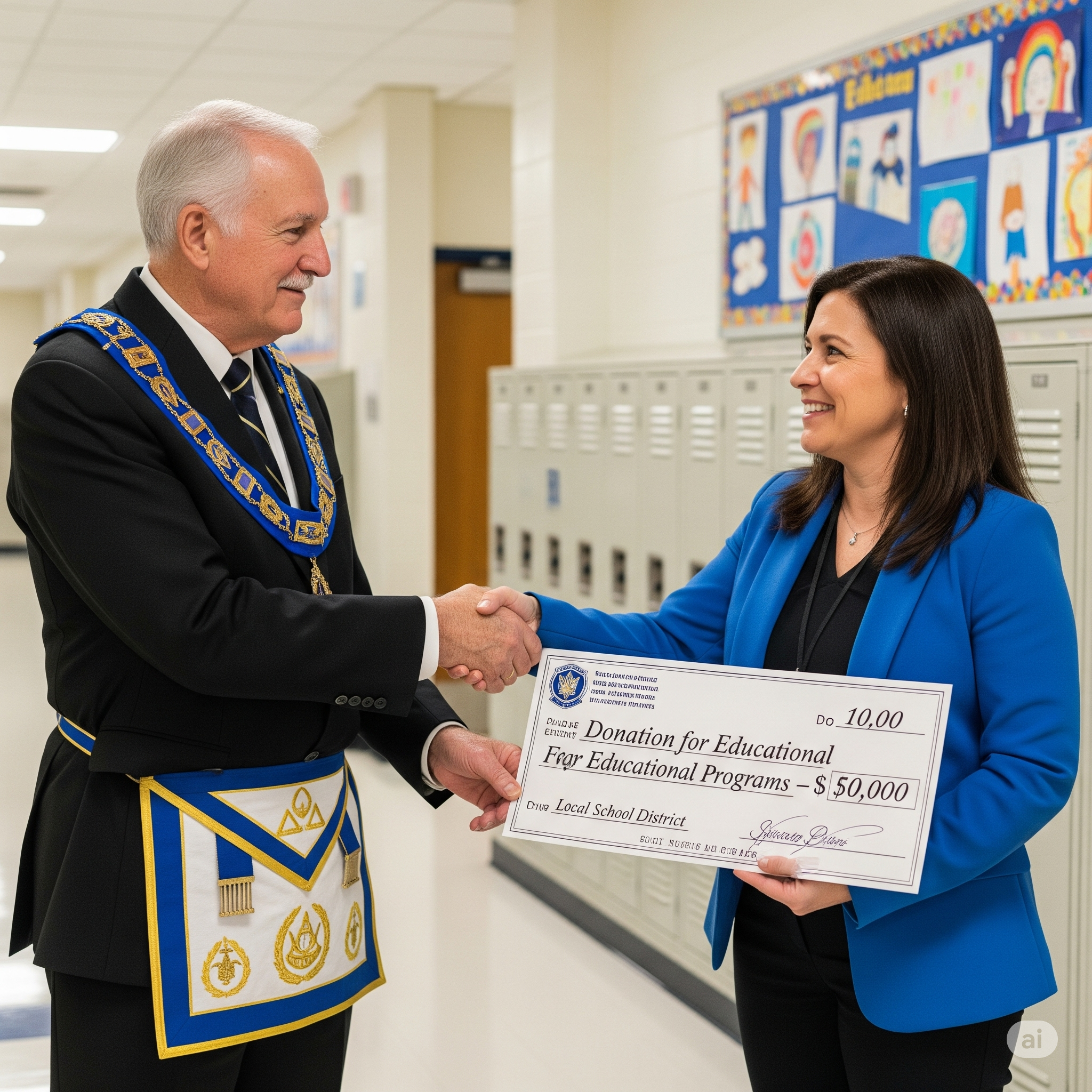Freemasonry’s commitment to charity is a fundamental part of its identity, often guided by the principle of “relief,” or caring for those in need. While the public may not always be aware of the full extent of their philanthropic work, it is a core tenet of the fraternity, funded primarily through the contributions of its members.
Here is a closer look at how Freemason charity operates:
1. The Core Philosophy of Giving
Freemasons are taught to be charitable without seeking public recognition. Unlike many other organizations, they do not conduct public fundraising campaigns, street collections, or telethons. Instead, their charitable efforts are funded by the voluntary donations of individual members and lodges. The motto “to give without remembering and to receive without forgetting” encapsulates this philosophy. This emphasis on quiet, private benevolence is rooted in a tradition of discreetly helping those in need, especially fellow Masons and their families, while also extending support to the wider community.
2. Major Charitable Organizations
While individual lodges raise money for local causes, a significant portion of Freemasonry’s philanthropy is channeled through large, well-established charitable foundations. One of the largest is the Masonic Charitable Foundation (MCF) in England and Wales. It was formed by merging four previous charities and provides a wide range of support, including financial grants to Masons and their families in need, as well as grants to national and local charities focused on healthcare, education, and community support.
In North America, organizations like Shriners International are widely recognized. The Shriners are known for their network of 22 hospitals that provide specialized pediatric care to children, regardless of their families’ ability to pay.
3. Key Areas of Focus
Masonic charities support a diverse range of causes, with a particular focus on:
- Healthcare: This is a major area of Masonic philanthropy, with a long history of establishing hospitals and care facilities. Beyond Shriners Hospitals for Children, Masons fund medical research, support hospices, and provide grants for medical treatments and mobility equipment.
- Education: Freemasons offer scholarships and grants to students at all levels, from primary school to university. They also support educational programs and initiatives for young people, such as the DeMolay Foundation, which is dedicated to character-building and leadership development.
- Community Service: From providing aid during natural disasters to supporting local food banks and community centers, Freemasons are actively involved in improving their communities. The Teddies for Loving Care (TLC) program, where lodges provide teddy bears to hospital emergency rooms to comfort young children, is a well-known example of this grassroots effort.
- Support for Members: A core aspect of Masonic charity is providing a “safety net” for members and their families who have fallen on hard times. This can include financial assistance, long-term residential care, and support for the elderly and infirm.
Through a combination of large-scale foundations and local lodge initiatives, Freemasonry demonstrates a commitment to making a positive, lasting impact on society, guided by its foundational principles of integrity, friendship, and relief.

